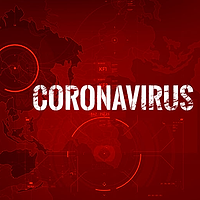North Korea is becoming ever more dangerous with its successes in developing ballistic missiles and nuclear weapons. The hermit kingdom’s lesser-known capabilities in the areas of chemical and biological weapons development are no less important to our national security, however.
Many biological weapons experts think North Korea possesses both smallpox and plague, pathogens responsible for the deaths of hundreds of millions of peoples over the centuries. Unleashing them could cause chaos. The other pathogens North Korea is believed to possess, however, are of more direct concern to food defense professionals. These include Brucella, anthrax and avian influenza, any one of which could cause deadly disease in animals and humans.
The U.S. already suffered a serious biological-weapons attack in the aftermath of the 9-11 attack on the twin towers and the Pentagon. A major bioterrorism event on our food supply or our agricultural systems would be expected by many experts to cost us well into the hundreds of millions or even billions of dollars. Food and agriculture are critical infrastructures, essential to our well-being and national security. Any looming threat to our nation will generally entail a threat at some point to our food supply.
So what should food defense professionals do?
North Korea, like other nations have in the past ( e.g., Russia and Japan), may see the use of biological weapons as a way to help break the will of the enemy by causing maximum disruption, overwhelming response capabilities and severely damaging an opponent’s economy. To accomplish these goals, a biological attack would likely occur in many places simultaneously and perhaps involve multiple pathogens, confusing diagnosticians and compounding the damage by causing delay.
This adversarial strategy can be countered most effectively by minimizing the delay in response, helping to contain the individual outbreaks before they spread further. A weaponized-avian-influenza outbreak for example might ultimately involve dozens and perhaps hundreds of poultry houses, but each outbreak will likely start on a single farm or small number of farms, then spread.
Early containment will be almost entirely dependent on local management, who must know how to recognize an emergency for what it is and how to respond appropriately. Diagnosis of the exact agent at that point is largely immaterial; what is important is stopping the spread of the disease. And here’s a word to the wise: Don’t expect the government to respond quickly in the early stages of a biological attack. The responsibility for early stages of containment will be entirely dependent on the people at the plant or on the farm.
Movement of anything, whether grower, equipment or animal, must be stopped immediately to prevent the potential spread of a pathogen. Animal production companies often have well-designed emergency response plans, but these plans tend to deal with emergencies that are natural in their origin. Such plans would likely fall short in responding to an agroterrorism event, where the movement would be much more swift and widespread.
Every food defense professional should consider his or her company as a potential ground zero for an agroterrorism event and start planning for widespread and swiftly moving outbreaks. That could be the reality if North Korea decides to attack the U.S. or our allies with biological weapons.
They also need to make provisions for more complete surveillance of animal production areas and perimeter areas. All biosecurity and physical security plans should be made more robust; the level of threat justifies further investment in these security elements.
We are no longer fortress America, and Europe has proven to be a place where bad people doing bad things can cause tragedy. We as a nation have to realize that nefarious people and the pathogens they could bring with them are able to enter our country at the speed of an international airplane flight.
If something suspicious is observed in a food production or processing plant, there is no time for timidity. Suspicions must be reported promptly; bad people wanting to do bad things may already be working among us.
At present, the U.S. has the safest, most secure and abundant food supply of any nation in the world, in large part because of the hard work of food production and processing professionals. We must be smarter and more vigilant than our adversaries to keep it that way. Food security is national security.
Robert A. Norton, Ph.D., is chair of the Auburn University Food System Institute’s Food and Water Defense Working Group (aufsi.auburn.edu/fooddefense). He is a long-time consultant to the U.S. military and federal and state law enforcement agencies and is editor of Bob Norton’s Food Defense Blog (aufsi.auburn.edu/fooddefense/blog/). He can be reached at nortora@auburn.edu or at 334.844.7562.
DISCLAIMER: Dr. Norton and production of this article were supported by the Alabama Agricultural Experiment Station and the Hatch program of the National Institute of Food and Agriculture, U.S. Department of Agriculture. The article represents the personal opinion of the author and does not reflect official policy or statutory related opinion of the Federal Government, National Institute of Food and Agriculture and/or the U.S. Department of Agriculture.
How Current World Threats May Impact Food Safety




